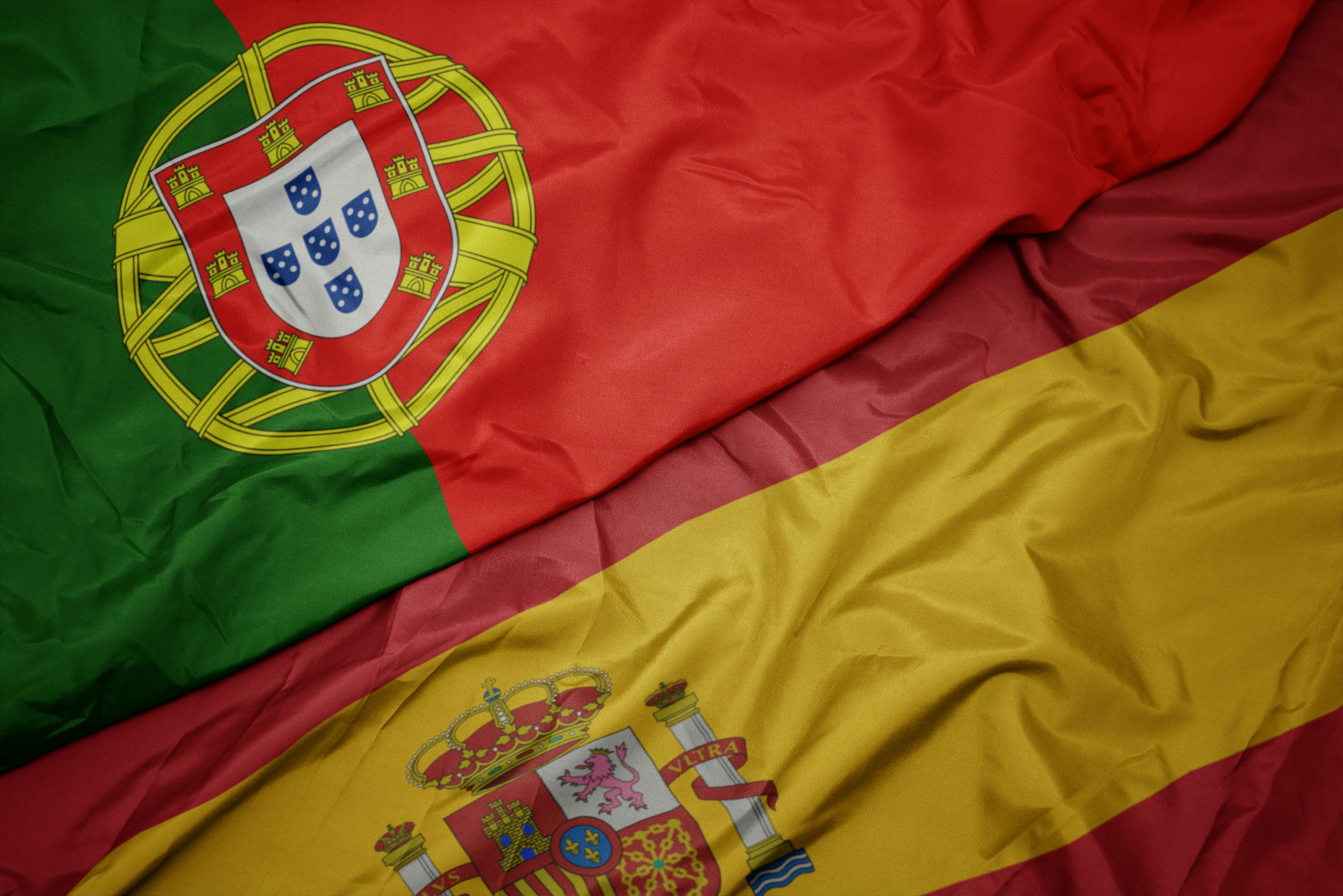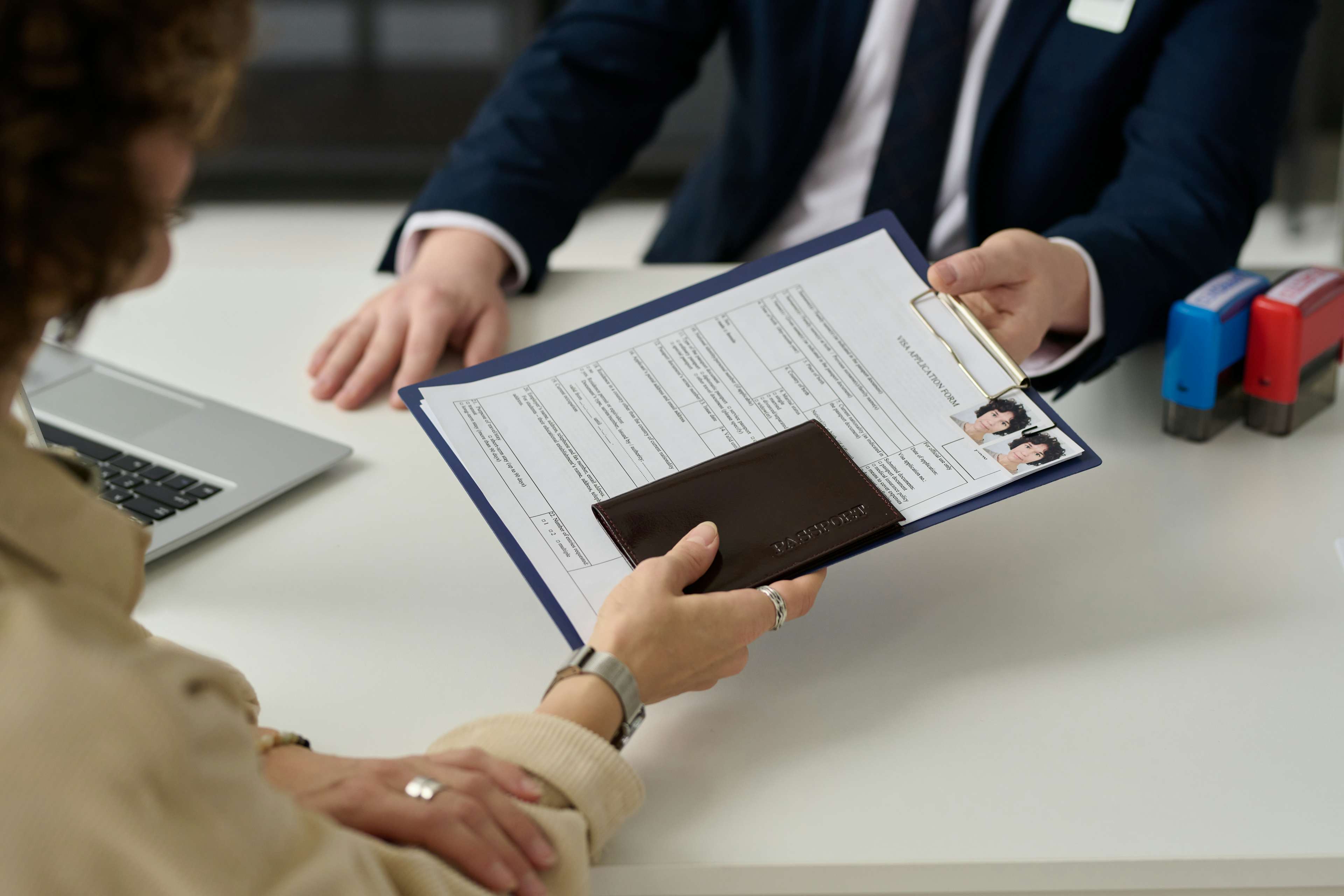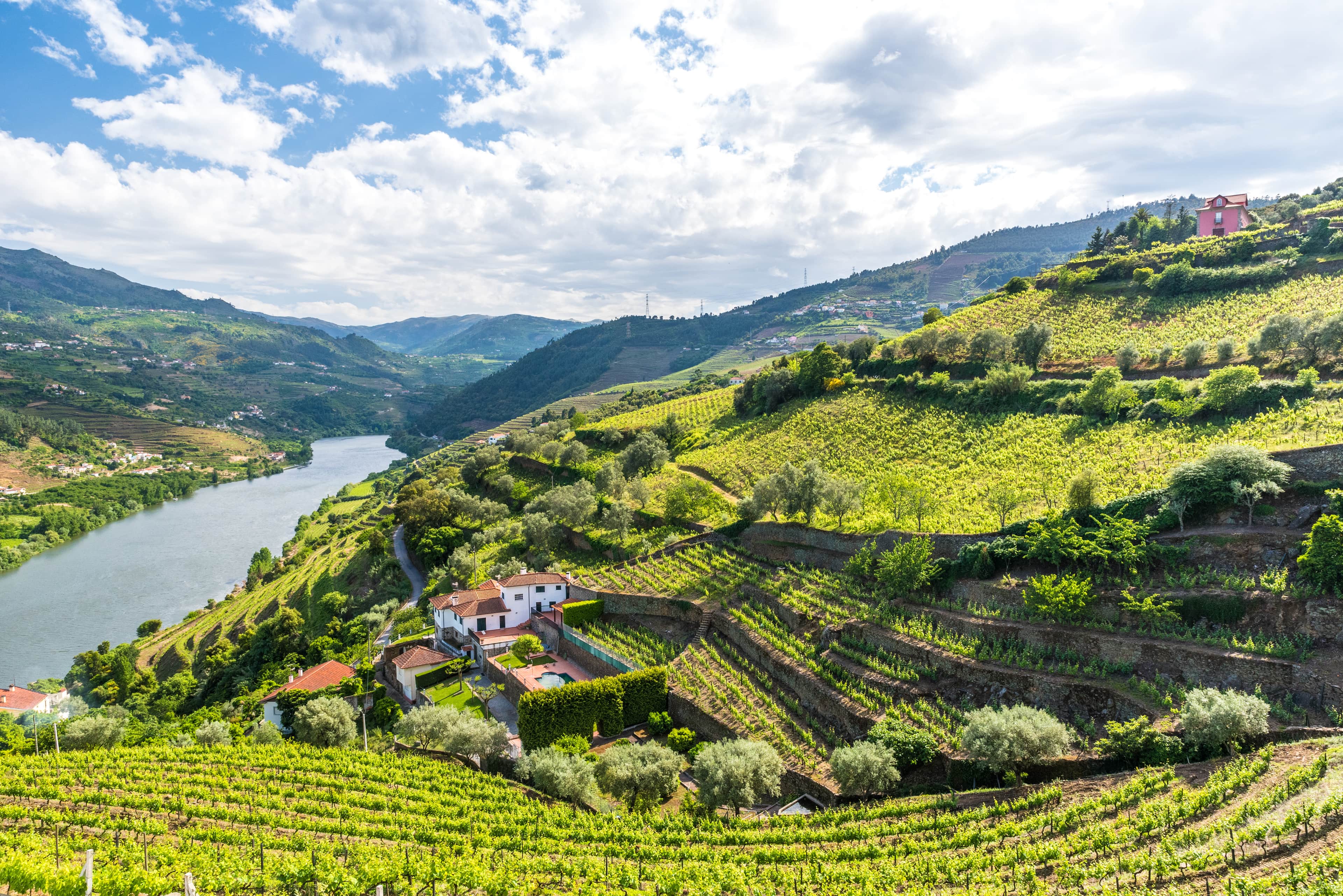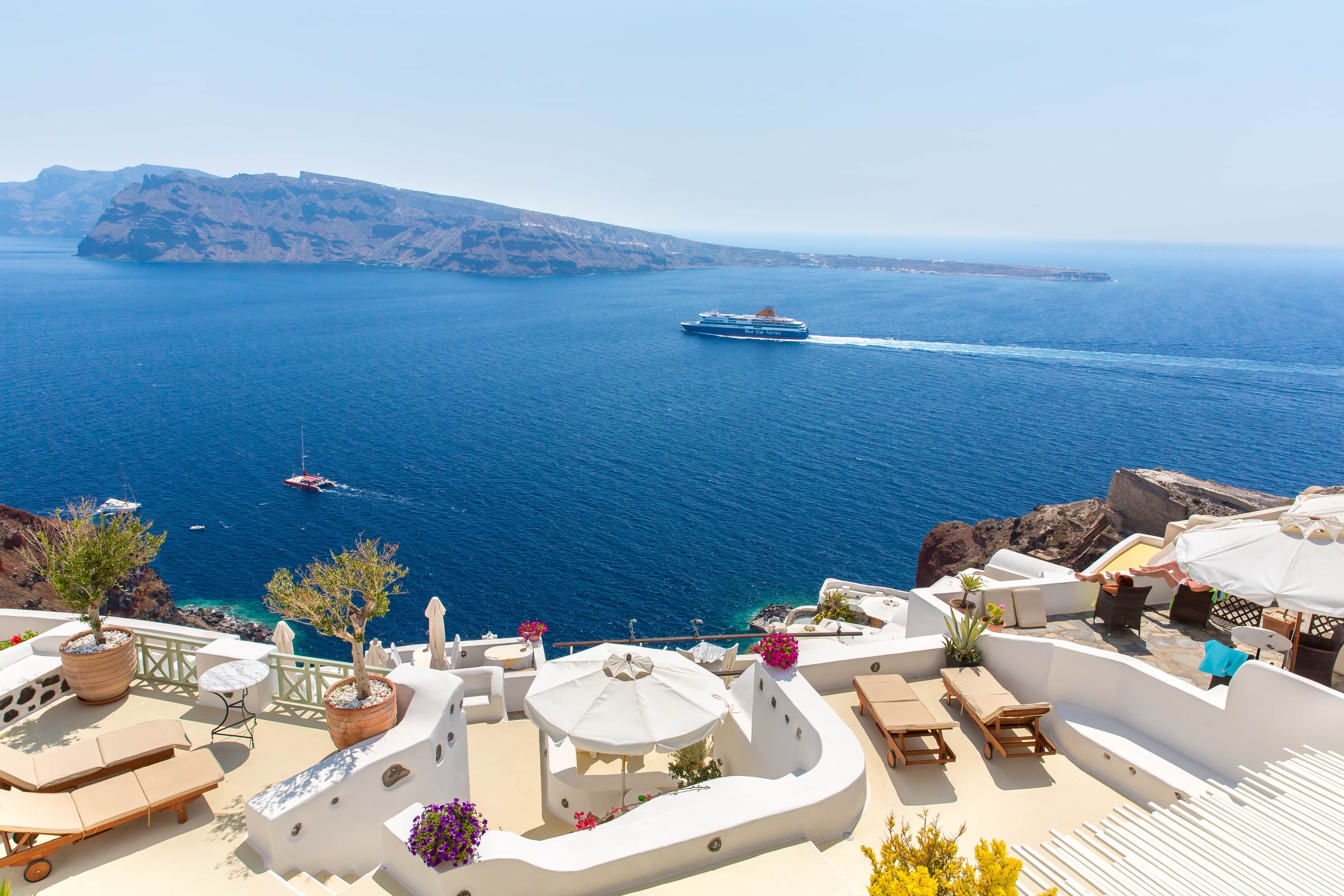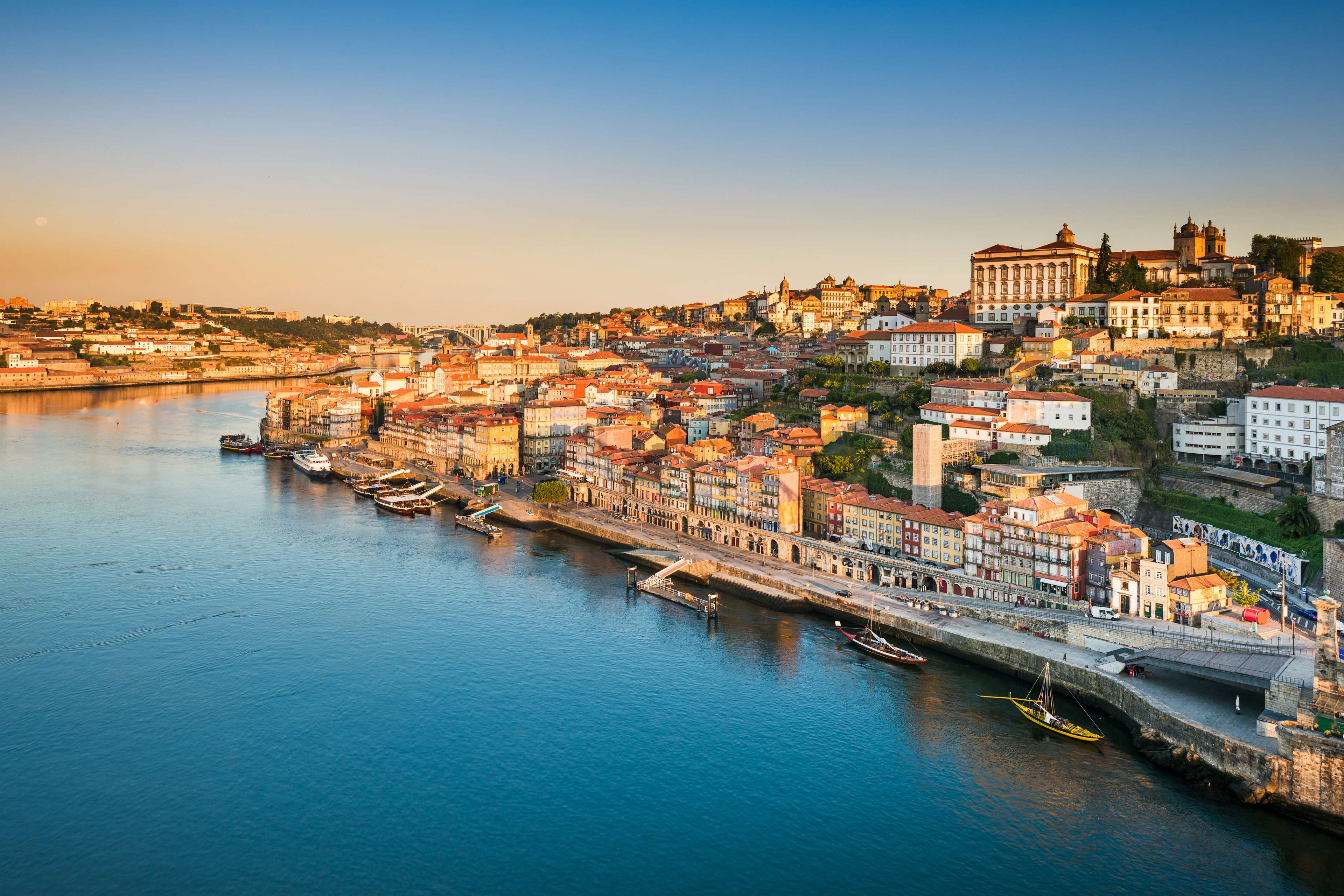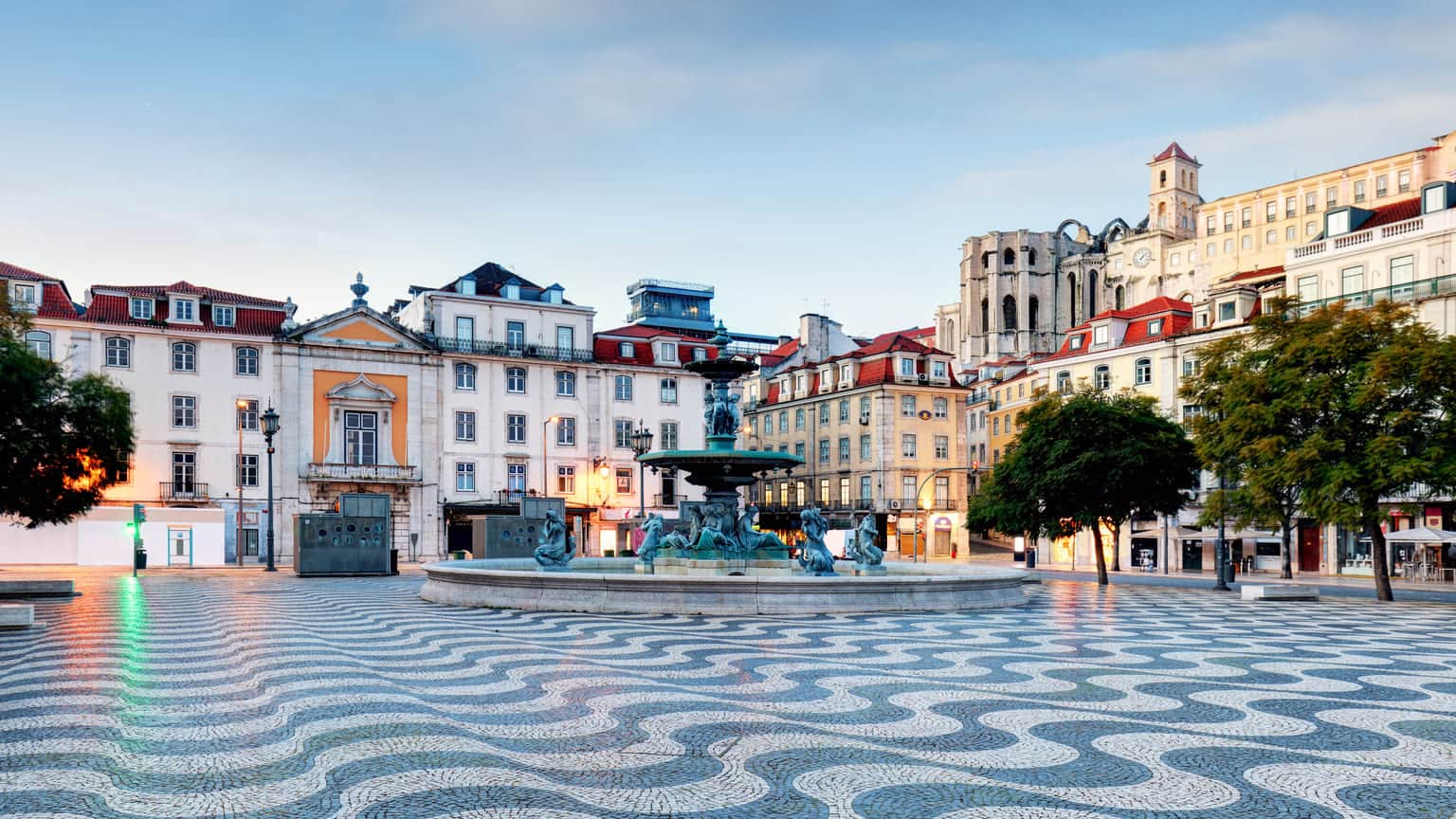Understanding Portugal’s Golden Visa and D7 Visa can be confusing. One of the main differences is tax residency. A D7 visa requires a person to move to Portugal and become the country’s tax resident. At the same time, with the Golden Visa, you are not obliged to live in Portugal: the required stay is 7 days a year.
In this article, we explain all the differences between a Golden Visa and a D7 Visa.
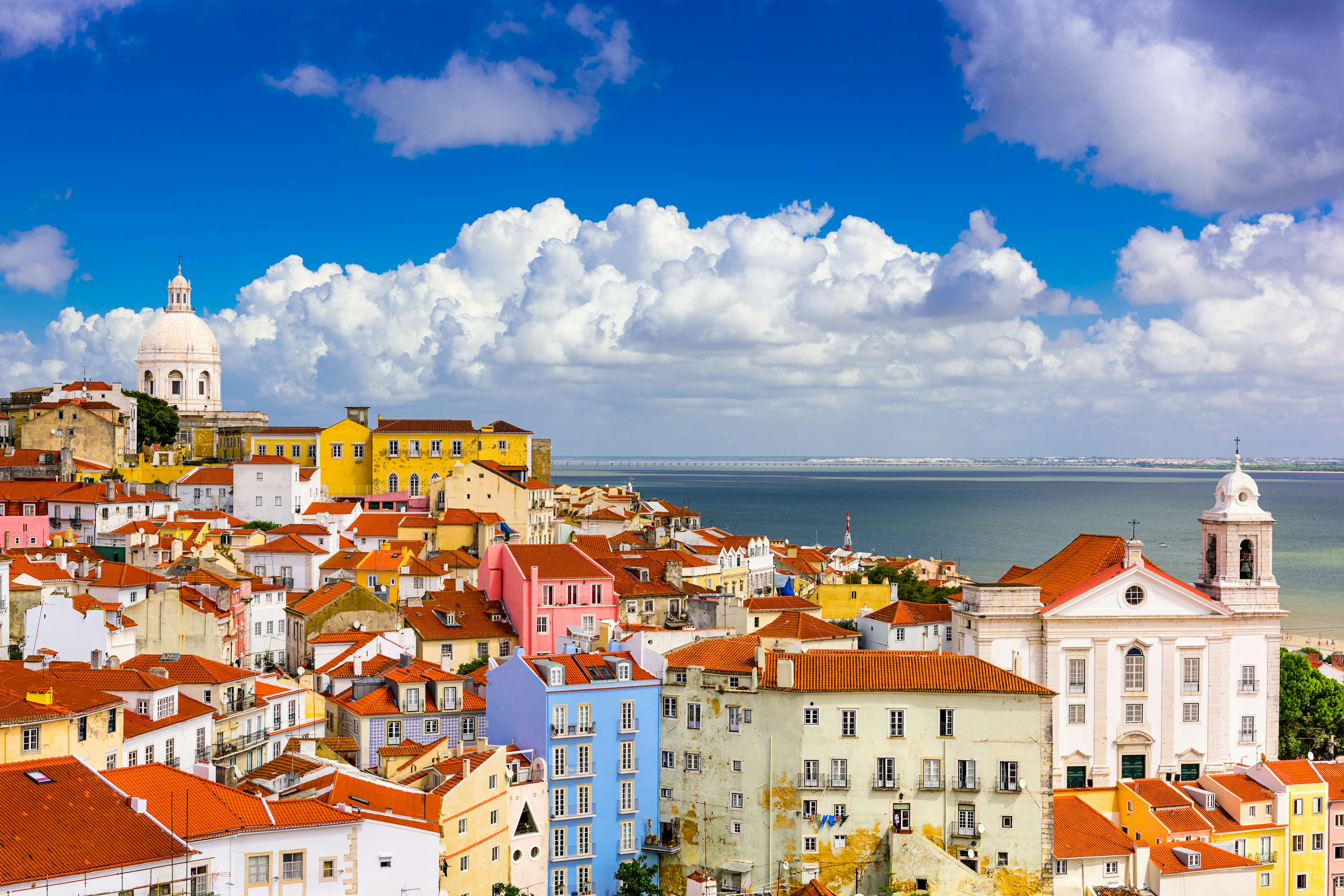
Portugal Golden Visa vs D7 Visa: Detailed Comparison
Share:
Portugal Golden Visa and D7 Visa: Key Information
Portugal Golden Visa is an opportunity to obtain a Portuguese residence permit by contributing to the country’s economy. There are several investment options starting from €250,000. The residence permit is issued for 2 years. To maintain the status, one must spend at least 7 days a year in Portugal.
Portugal D7 Visa is also known as a Passive Income Visa that leads to a residence permit. This visa is granted to financially independent foreigners with passive income outside Portugal. The resources can be different: pension, rentals, dividends or others.
The validity period of a D7 Visa is 4 months. Within that time, its holder must enter Portugal and apply for a residence permit valid for two years. To remain a resident under this option, foreigners must live either 1.5 years in a row, or at least 16 months in total in the country.
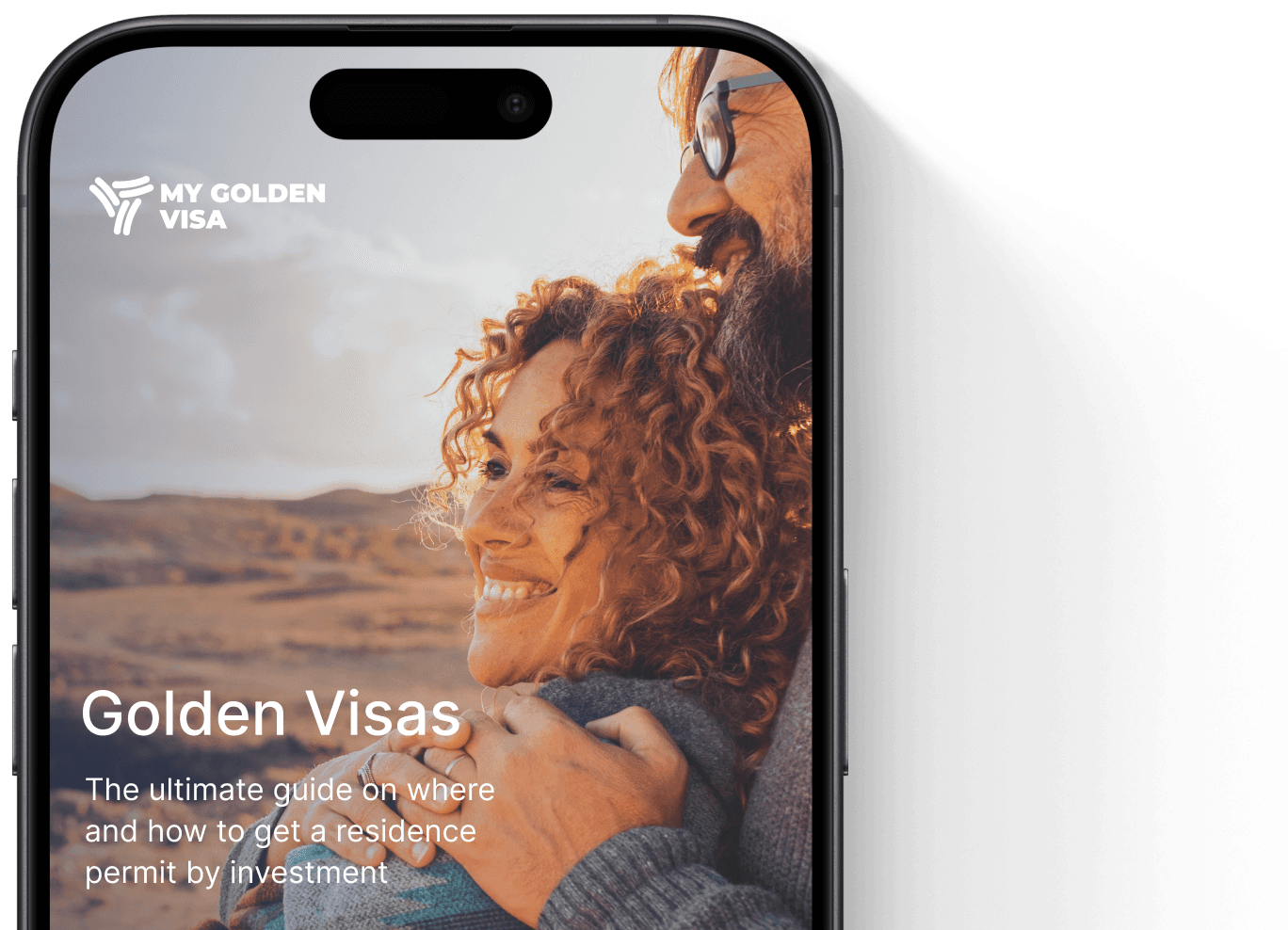
Explore the benefits and drawbacks of the Portugal investment program versus other Golden Visas
5 Benefits of Portugal Residence Permit
Having a residence permit in Portugal can offer various benefits to individuals who choose to live in this beautiful country. It doesn’t matter whether they obtained the status under a Golden Visa program or a D7 Visa program. Here are five key advantages:
1. Access to the Schengen Area. Portugal is part of the Schengen Agreement, which allows residents with a Portuguese residence permit to travel freely within the Schengen Area. This includes most European countries, making it easier to explore Europe without the need for additional visas.
2. Tax benefits. Portugal offers attractive tax incentives for new residents, including the Non-habitual resident (NHR) status. NHR status can lead to reduced tax rates on foreign income and pensions for a specified period, making it an appealing option for retirees and expatriates.
3. Education and healthcare. Portugal has a strong public education system and universal healthcare. Residents can access quality education and healthcare services. Foreigners with a Portuguese residence permit study and get treatment in EU countries under the same conditions as EU citizens.
4. Safety and stability. Portugal is known for its political stability and low crime rates. It is considered one of the safest countries in Europe, providing a secure environment for residents and their families.
5. High quality of life. Portugal consistently ranks high in global quality of life indexes. The country offers a pleasant climate, beautiful landscapes, a rich cultural heritage, and a welcoming atmosphere, all contributing to a high quality of life for residents.

Portugal is located on the board of the Atlantic Ocean, and one of the best-known beaches in that area is Camilo Beach. The water there is warm for the majority of the year
Requirements for Obtaining Golden Visa and D7 Visa
Main applicant. Requirements for the main applicant are similar under both programs. One must be over 18, buy medical health insurance, prove the legality of their income and have no criminal record. Both investment money and passive income must come from outside Portugal.
Family members. An investor participating in the Golden Visa program can add:
a spouse;
minor children;
children aged 18—26 if they are financially dependent on the investor and study at the university;
financially dependent parents of any age;
financially dependent siblings under 26 if they are in the investor’s custody.
Under the D7 Visa program, the main applicant can add their spouse, minor children, unmarried children aged 18—21 if they are unemployed, and financially dependent parents.
Costs of Getting Golden Visa and D7 Visa
Under the Golden Visa program, there are five investment options. They are:
supporting the cultural heritage — €250,000+.
investment in science research — €500,000+.
investment in local business with the creation of at least 5 jobs — €500,000+;
purchase of investment fund units — €500,000+;
opening a company with the creation of at least 10 jobs.
Besides investing, the applicant must pay €400+ for medical insurance, €533 per family member for an application fee, and €5,340 per family member for issuing residence permit cards.
D7 Visa requires having a passive income of at least €760 a month. As the sum is tied to the minimum salary in Portugal, it changes every year. €760 is required for a sole applicant.
Applicants are allowed to invite close family members to move to Portugal with them. If they decide to do so, the minimal monthly income increases by 50% for a spouse or a parent and 30% for a child.
Besides having passive income, a financially independent person must rent or buy a residential property. There are no minimum sum requirements.
Other expenses under the D7 Visa program include:
medical insurance — €14+ per family member;
visa application fee — €90 per family member;
residence card processing fee — €83 per family member;
residence card issuance fee — €72 per family member.

Discover 9 most popular Golden Visa programs and choose the best one for your goals.
Documents for Obtaining a Golden Visa and D7 Visa
The package of documents for obtaining both visas is similar. It includes:
a passport;
filled out government forms;
a birth certificate;
a marriage certificate if applicable;
health insurance;
bank statements;
police clearance certificate.
Depending on each person’s situation, they might be required to provide additional papers. For example, applicants for a D7 visa must submit a document proving their passive income, and applicants for the Golden Visa — proof of investment fulfillment.
Documents must be translated by a certified translator and notarized.
Step-by-step Process of Obtaining a Golden Visa by Investing in Fund Units
The process of getting a Golden Visa is similar for every investment option and takes at least 8 months.
1 day
Checking eligibility criteria
A foreigner must be sure that they are eligible for obtaining a Golden Visa. That means they have enough money to invest in the country, and it is gained legally outside Portugal. They also must be over 18 and have no criminal record or prosecution.
When a potential investor is sure they meet all the requirements, they should contact a law firm that can help with the process of obtaining a Golden Visa.
A foreigner must be sure that they are eligible for obtaining a Golden Visa. That means they have enough money to invest in the country, and it is gained legally outside Portugal. They also must be over 18 and have no criminal record or prosecution.
When a potential investor is sure they meet all the requirements, they should contact a law firm that can help with the process of obtaining a Golden Visa.
3 days
Choosing a fund
The chosen fund must meet the program’s criteria. For example, it has a maturity of at least 5 years.
The chosen fund must meet the program’s criteria. For example, it has a maturity of at least 5 years.
1 week
Obtaining taxpayer number
It is called Numero de Identificacao (NIF) and is required to open a bank account in a Portuguese bank later. The investor can get NIF in person or through a representative.
It is called Numero de Identificacao (NIF) and is required to open a bank account in a Portuguese bank later. The investor can get NIF in person or through a representative.
1 month
Opening a bank account
An investor must have a local bank account to make all the payments connected with a residence permit program within Portugal. Again, it can be opened in person or through a representative.
An investor must have a local bank account to make all the payments connected with a residence permit program within Portugal. Again, it can be opened in person or through a representative.
Up to 2 weeks
Purchase of fund units
The fund checks the investor to make sure money was earned legally, and only after that, signs a contract.
Then, the applicant transfers the required sum of money with a fund commission.
The fund checks the investor to make sure money was earned legally, and only after that, signs a contract.
Then, the applicant transfers the required sum of money with a fund commission.
1—2 months
Preparing documents
The basic package of documents includes:
a copy of a passport;
police clearance certificate;
marriage certificate, if applicable;
health insurance for the whole family;
a signed declaration from the investment fund;
government questionnaires and forms.
The basic package of documents includes:
a copy of a passport;
police clearance certificate;
marriage certificate, if applicable;
health insurance for the whole family;
a signed declaration from the investment fund;
government questionnaires and forms.
1 day
Fingerprinting
The investor and their family members must come to Portugal and submit their biometrics data.
The investor and their family members must come to Portugal and submit their biometrics data.
4—6 months
Due Diligence
During the Due Diligence process, Portuguese authorities check all applicants against international databases such as Europol and Interpol and via the Internet.
They must be sure potential residents won’t hurt the country or its people in any way.
During the Due Diligence process, Portuguese authorities check all applicants against international databases such as Europol and Interpol and via the Internet.
They must be sure potential residents won’t hurt the country or its people in any way.
1 day
Collection of residence permit cards
After the approval is issued, the investor must pay a residence permit card issuance fee and collect documents.
After the approval is issued, the investor must pay a residence permit card issuance fee and collect documents.
How to Obtain a D7 Visa and a Residence Permit After
The process of obtaining a Portugal D7 visa takes at least 4 months. It can be prolonged depending on the applicant’s situation. The procedure is the following:
1. Check eligibility criteria and contact a reputable agent. First, you need to make sure you’re eligible for obtaining a D7 visa. Then get an agency that specializes in obtaining Portuguese visas.
2. Get a Portuguese taxpayer number. A taxpayer number — NIF (Número de Identificação Fiscal) is required to open a bank account in Portugal and rent or buy a property. Foreigners obtain it through a tax representative in Portugal remotely.
3. Open a bank account by providing NIF and a passport. After it’s open, transfer a sum of money sufficient for your family to live in Portugal for a year.
4. Rent or buy real estate. An applicant can select a property remotely through an agency or in person. The process of renting is faster than purchasing.
5. Gather documents and apply for a D7 visa. The applicant gathers all the documents and fills out government forms. It is also required to translate and notarise some papers. The documents are submitted to a Portuguese consulate in the country of residence. There, the applicant must also pass fingerprinting.
6. Enter Portugal. The D7 visa is valid for 4 months. During this period, its holder must come to Portugal and apply for a residence permit card.
7. Apply for a residence permit. The applicant books an appointment and then submits documents for a residence permit to the Agency for Integration, Migrations and Asylum of Portugal (AIMA). Everything must be done in person.
8. Get a residency card. A residency card can be sent to the applicant’s address in Portugal. The document is valid for two years and can be extended to three years.
You can switch your D7 visa to a Golden Visa at any point in the application procedure. To do that, you just need to make an investment and follow the process described in the previous chapter.
Obtainment of Citizenship
Portuguese citizenship can’t be obtained by investment or through passive income. A foreigner can get a Portugal passport by naturalization only.
However, naturalization requirements are different for D7 visa and Golden Visa holders. To become eligible for citizenship, foreigners with Passive Income Visa must live in the country for five years while investors can just hold a residence permit for five years, spending only 7 days per year in Portugal.
In both cases, applicants for citizenship must pass a Portuguese language test at A2 or higher level.
Portugal allows its citizens to have dual citizenship, which means you don’t need to renounce your other one unless your country of origin requires it.
Taxes for Golden Visa and D7 Visa Holders
New Portugal residents can participate in the Non-Habitual Resident (NHR) program that offers a flat 20% tax on income earned in Portugal and 0% — on income from abroad.
The program lasts for 10 years and is available to anyone who has a residence permit in Portugal and has recently become a tax resident. A tax resident is a person who lives in Portugal for at least 183 days a year.
D7 visas require its holders to spend in the country for either 1.5 years in a row, or at least 16 months in total during the residence permit validity. Therefore, they are eligible to participate in the Non-Habitual Resident program.
Golden Visa holders are not obliged to live in Portugal to maintain their status. So, if they come to the country just for a few days, they can’t be Non-Habitual Residents. However, they still need to pay taxes on income earned in Portugal, but at an ordinary rate.
Choosing between Golden and D7 Visa: Which One Is Better?
Which visa to choose depends on your situation and preferences. Both of these documents grant a residence permit and eventually lead to Portuguese citizenship.
However, they have different requirements, processing procedures and periods of obtainment.
Key Takeouts
A foreigner can obtain a Portuguese Golden visa if they invest at least €250,000 in Portugal’s economy.
A D7 visa might be obtained by financially independent people with a passive income of at least €760 monthly. D7 visa applicants don’t need to make any investment.
Under both programs main applicants may add their close family members. However, the requirements differ.
The list of required documents for an application often includes: a passport, a birth certificate, a marriage certificate if applicable, health insurance, bank statements, police clearance certificate.
Obtaining a D7 visa often takes around 4 months. Getting a Golden Visa typically takes 8—10 months. Both of these visas eventually can lead to Portuguese citizenship.

Download our complete guide to learn everything you need about 9 popular Golden Visa programs.
Benefits
Investment options
Eligibility requirements
Processing times
Frequently Asked Questions
It is impossible to say which visa is better as both have different requirements and are aimed at different people.
D7 Visa is suitable for foreigners who have passive income outside Portugal. The Golden Visa is designed for people who have enough investment money and want to contribute to the Portuguese economy.
People with a passive income outside Portugal are eligible for a D7 visa. The required sum must exceed €760 per month per person.
The applicant must be over 18, buy medical health insurance, have no criminal record and have proof of legality of the income. The main applicant can also add their spouse, minor children, unmarried children aged 18—21 if they are unemployed and financially dependent parents.
The Portugal D7 can be easy to get if you have a legal passive income of €760+ per month. You also need to meet certain requirements.
Benefits of D7 Visa are:
no investment requirements;
fast and easy process of obtainment;
an opportunity to add family members to the application;
a right to live in Portugal and a path to citizenship.
Some disadvantages are the need to live in the country for either 1.5 years in a row, or at least 16 months in total during residence validity and buy or rent residential property.
One of the main disadvantages is the cost of a Golden Visa. You must invest at least €250,000, and you’re not guaranteed to get your money back if you contribute to support of cultural heritage or science research.
Another con is Due Diligence. It is a strict check that every person over 16 must undertake. Usually, it lasts for several months and includes different types of investigations.
Besides the D7 visa, Portugal offers a Golden Visa that is obtained by investment of at least €250,000 and a Digital Nomad Visa that is designed for digital nomads earning more than €3,040 per month.



